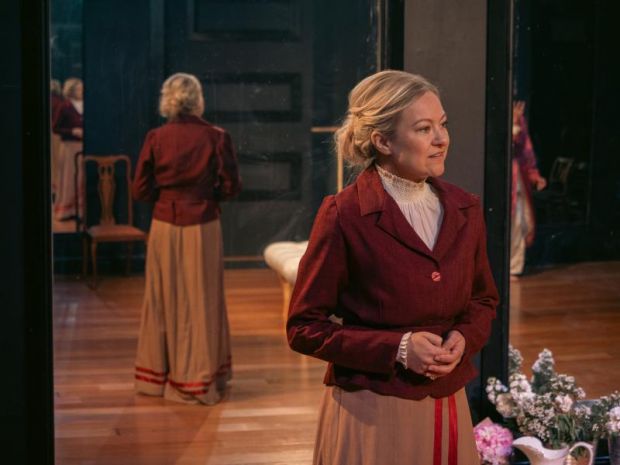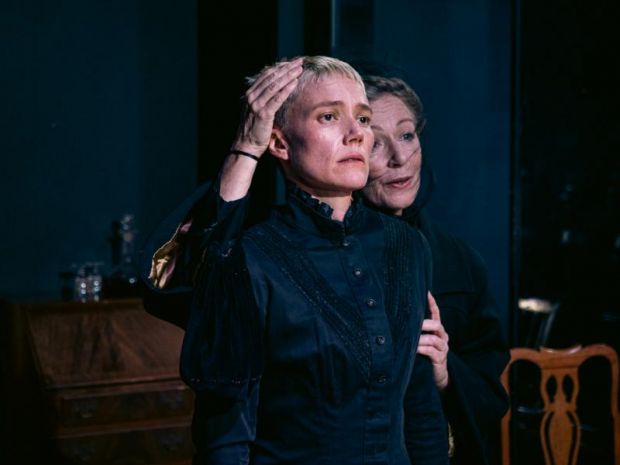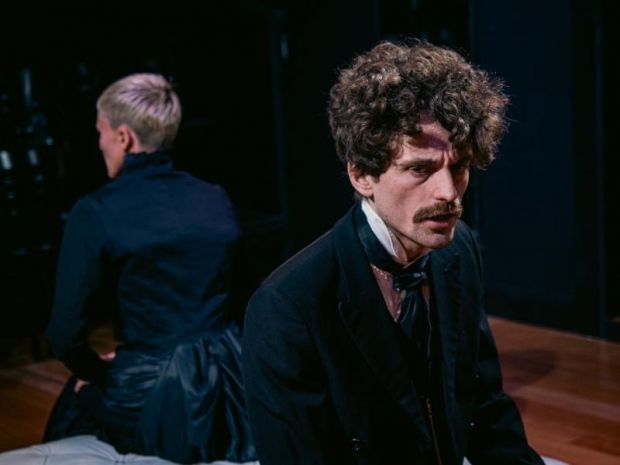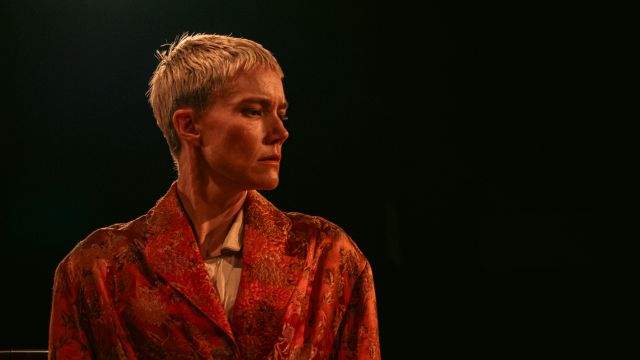Hedda Gabler
Ibsen’s famous anti-heroine, Hedda Gabler, raged at the oppressive patriarchy of her time but still negotiated 1891 Oslo with some subtlety: her liberating spirit was restrained in Henrik Ibsen’s play by her cowardly fear of any scandal.
In Anthony Skuse’s abbreviated, compelling version all social disguise and chat is stripped away, the play’s melodramatic bones are bared, and Hedda is, frankly, a narcissistic bitch. But Ibsen’s moral themes are still clear, perhaps even starker, and while this Hedda doesn’t move us, we understand her frustrations – and delusional psychosis.

Hedda long idolised her father and threatened away most of her young suitors with pistols. She craves power but she’s already compromised by her new marriage to a conventional academic, Tesman (James Smithers), and her horror of entrapment now grows in her womb. With disgust she mocks servile woman like Tesman’s fussing aunt Berte (Suzann James) and Thea Elvsted (Jane Angharad), timid perhaps but one happy to risk the scandal of associating with the anarchic young writer, Eilett Lovborg.
When Hedda discovers Thea has helped Lovborg write his remarkable new book – one likely to be far more successful than Tesman’s new tome – she’s desperate to destroy the manuscript and all associated with it. She insists Lovborg must end it all with a suitable Romantic idealism. Any destructive power she has is then clipped by the predatory Judge Brack (Christopher Tomkinson).

Skuse’s Hedda Gabler, which he directs, is a concise and detailed production, performed in impressive late nineteenth century costumes on Smither’s open period set with mirrors and select furniture including Hedda’s beloved piano (played evocatively by Christie Mae).
The KXT Broadway stage is small but here inventively employed, even if the actors need to sometimes sit in the front row, preforming amongst us – it’s a nice touch.

Ella Prince gives a commanding, highly physical performance as Hedda, even if their short bleached hair and snappy retorts suggests a different period than the rest of the cast. Prince’s Puck in a recent A Midsummer Night’s Dream had the same mesmerising energy, even if here their unguarded insolence nudges the play to melodrama.
This whole cast otherwise bring a nuanced authenticity to this thrilling tale.
Martin Portus
BUY THE PLAY SCRIPT HERE. (Student edition published by Methuen.)
Photography by Braiden Toko
Subscribe to our E-Newsletter, buy our latest print edition or find a Performing Arts book at Book Nook.

